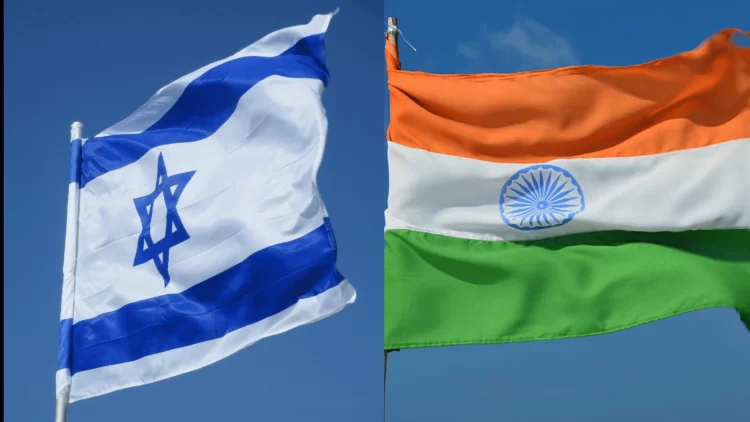On Saturday, India, alongside Western nations, condemned Hamas’s “terrorist attacks” on Israel, expressing support for Tel Aviv. Prime Minister Modi responded to the intense assault, which caught the global community off guard, in a post on X.

NEW DELHI (India CSR): On Saturday, India stood alongside the West condemning Hamas’s severe terrorist attacks on Israel, reaffirming its alliance with Tel Aviv. The audacious assault saw Hamas militants launch over 5,000 rockets from Gaza and send armed groups across the border, resulting in significant casualties, the deadliest in Israel for years. This surge in violence follows escalating tensions surrounding Jerusalem and eviction disputes in East Jerusalem.
Prime Minister Modi expressed India’s strong disapproval of Hamas’s actions, asserting Israel’s right to self-defense. In response, Israel expressed gratitude towards India and other nations that voiced solidarity. This intensified conflict presents multifaceted challenges globally, pressing for international intervention and testing India’s diplomatic relations in West Asia.

***
What happened in Israel?
Israel was attacked by Hamas militants from Gaza on Saturday morning, who launched over 5,000 rockets and infiltrated the border with dozens of gunmen. The attack killed at least 100 Israelis and wounded over 900 others, making it the deadliest in Israeli territory in years. Israel’s Prime Minister Benjamin Netanyahu declared a state of war and vowed to extract an “unprecedented price” from Hamas.
The attack came amid rising tensions between Israel and Palestine over the status of Jerusalem and the eviction of Palestinian families from Sheikh Jarrah, a neighbourhood in East Jerusalem. Hamas, which controls Gaza, had issued an ultimatum to Israel to withdraw its forces from the area and release detained Palestinians by 6 am on Saturday. When Israel did not comply, Hamas launched its surprise attack.
***

What did India say?
India, which has a close strategic partnership with Israel, strongly condemned the attack by Hamas and expressed its support for Israel’s right to defend itself. Prime Minister Modi said that India’s thoughts and prayers are with the innocent victims and their families. He also said that India stands with Israel at this difficult hour.
“Deeply shocked by the news of terrorist attacks in Israel. Our thoughts and prayers are with the innocent victims and their families. We stand in solidarity with Israel at this difficult hour,” Modi said.
India’s Foreign Minister S Jaishankar also tweeted his condemnation of the attack and called for restraint and dialogue to restore peace.
“Strongly condemn the terrorist attacks in Israel. Urge all parties to exercise restraint and engage in dialogue to de-escalate the situation and restore calm,” Jaishankar said.
***
How did Israel respond?
Israel thanked India for its moral support and appreciated its friendship. Israel’s Ambassador to India Naor Gilon said that India’s solidarity was much appreciated and that Israel would prevail.
“Thank you @PMOIndia. India’s moral support is much appreciated. Israel will prevail,” Gilon said.
Israel also thanked other countries that condemned the attack by Hamas and expressed their solidarity with Israel. These include the US, UK, France, Germany, Canada, Australia, etc.
***

What are the implications of the attack?
The attack has escalated the conflict between Israel and Palestine to a new level of violence and complexity. It has also triggered a humanitarian crisis in Gaza, where more than two million people live under a blockade imposed by Israel and Egypt. The UN has warned of a potential catastrophe if the fighting continues.
The attack has also posed a challenge for the international community, especially for the US, which is trying to revive the stalled peace process between Israel and Palestine. The US has called for an immediate end to the violence and urged both sides to respect international law and human rights. The US has also sent its envoy Hady Amr to the region to mediate between the parties.
The attack has also tested the relations between India and its allies in West Asia, where it has strategic interests and a large diaspora. India has maintained a balanced approach towards both Israel and Palestine, supporting a two-state solution based on mutual recognition and coexistence. India has also developed strong ties with Arab countries such as Saudi Arabia, UAE, Bahrain, etc., which have recently normalized their relations with Israel under the Abraham Accords.
(India CSR)







